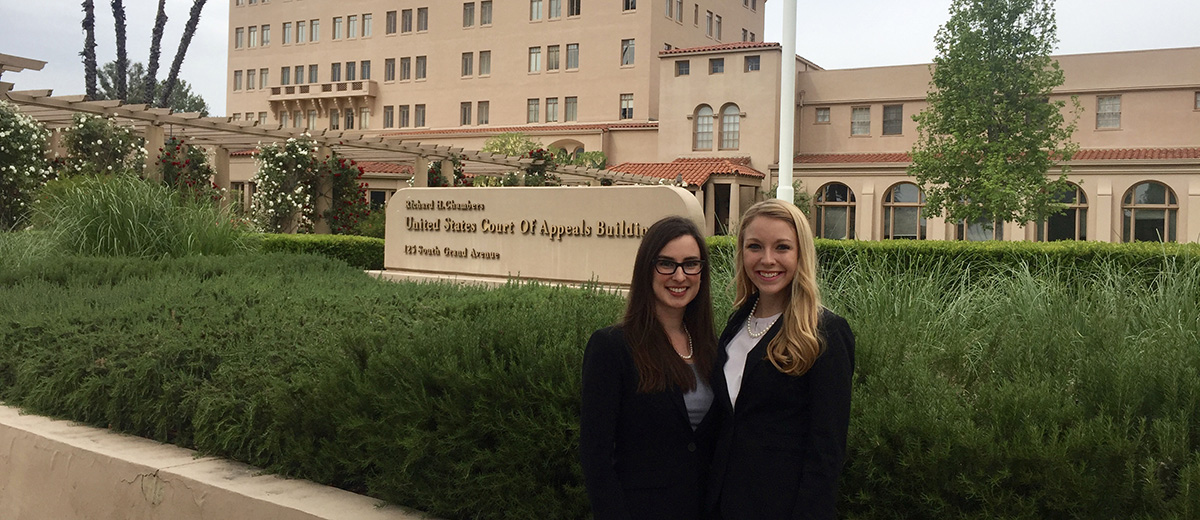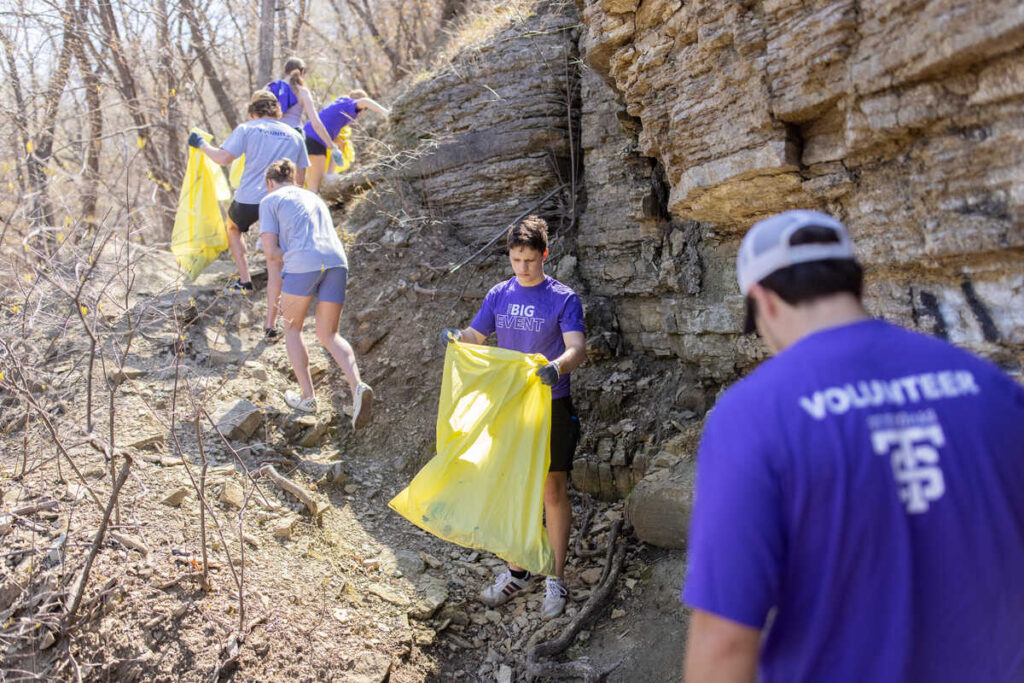Third-year students in the University of St. Thomas School of Law Appellate Clinic argued and won a prisoner personal injury case before the U.S. Court of Appeals for the Ninth Circuit in Pasadena, California, on April 7—marking the third year in a row in which students from this clinic have successfully convinced the appellate court to reverse a trial court judgment against a prisoner.
The case, Oray P. Fifer v. United States, was argued by students Caitlin Drogemuller and Catherine Underwood, who worked on behalf of the school’s Appellate Clinic led by Professor Gregory Sisk. The clinical team began working on the case in summer 2015, writing opening and reply briefs over several months.
Oray Fifer, a federal prisoner, was in the Federal Correctional Institution in Phoenix when a race riot broke out. Although Fifer did not participate in the riot and was running to return to his cell as ordered by correctional officers, he was shot in the head six times by dangerous, less-lethal rubber munitions. The final shot to the face permanently damaged his left eye and was fired when Fifer was down on all fours.
The United States obtained a dismissal of Fifer’s pro se Federal Tort Claims Act (FTCA) suit in District Court on summary judgment, contending that the correctional officer was justified in use of force. The Government also contended that it was entitled to special immunity for jail officials under Arizona law, which applies to this FTCA action.
On appeal, the University of St. Thomas Appellate Clinic contended that the United States has the burden of proof because justification is an affirmative defense, and that the Government cannot establish that shooting Fifer in the face while he was down on the ground was so clearly justified as to permit rejection of his claim before trial. The Court of Appeals agreed that a reasonable jury could conclude that, while use of force to suppress the riot was generally justified, the prison's "use of force against Fifer was not reasonably 'necessary' to maintain prison order, to preserve the peace, or to prevent the commission of a crime."
The Appellate Clinic is a year-long course that charges students to study written and oral advocacy, appellate courts, appellate jurisdiction and the rules of appellate procedure. Clinical students represent a client pro bono under faculty supervision, briefing and arguing appellate cases on their behalf.







